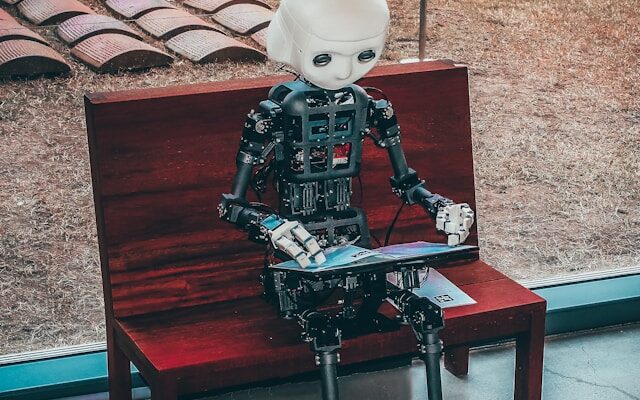In a groundbreaking move, a school in Thirunanthampuram, Kerala, India has introduced an AI (Artificial Intelligence) robot teacher to transform the teaching process. Known as Iris, this humanoid robot teacher, developed in partnership with MakerLabs Edutech, is set to revolutionize education in the state and the entire country.
Iris, the first of its kind in Kerala, is a result of the collaboration between MakerLabs Edutech and Laduvile Thingal Charitable Trust. This innovative project is part of the Atal Tinkering Lab initiative introduced by NITI Aayog in 2021, aimed at promoting extracurricular activities in schools.
With its advanced AI technology, Iris is capable of speaking multiple languages and answering complex questions across various subjects. Not only does it feature voice assistance software, but it also provides interactive learning experiences for students. Equipped with wheels, Iris can effortlessly move from one place to another, making it a versatile and interactive addition to the classroom.
The introduction of Iris marks a significant change in the educational landscape of Kerala. By incorporating AI technology, this robot teacher offers different learning styles, making education more engaging and interesting for students. With Iris, students can experience a personalized learning environment tailored to their individual needs and preferences.
One of the key advantages of having an AI robot teacher like Iris is its ability to adapt to different teaching methodologies. It can cater to visual, auditory, and kinesthetic learners, ensuring that every student receives the education they deserve. This personalized approach not only enhances the learning experience but also fosters a deeper understanding of the subject matter.
Moreover, Iris serves as a valuable resource for teachers. By automating certain tasks, such as answering common questions or providing supplementary materials, it frees up teachers’ time, allowing them to focus on more critical aspects of education, such as facilitating discussions and guiding students’ understanding.
The integration of AI technology in the classroom also prepares students for the future. As technology continues to advance, AI will play an increasingly significant role in various industries. By familiarizing students with AI at an early age, Kerala is equipping them with the necessary skills and knowledge to thrive in a rapidly evolving world.
While the introduction of Iris is undoubtedly a significant milestone in the field of education, it is essential to strike a balance between technology and human interaction. While AI can enhance the learning experience, it cannot replace the invaluable role of teachers. The human touch, empathy, and guidance provided by teachers are irreplaceable and vital for holistic development.
In conclusion, the introduction of Iris, the AI robot teacher, in Kerala’s TCT Higher Secondary School marks a remarkable advancement in the educational landscape. With its ability to provide personalized learning experiences and adapt to different teaching methodologies, Iris is set to transform education in the state. By embracing AI technology, Kerala is preparing its students for the future while ensuring that the human element of teaching remains at the core of education. This innovative initiative is a testament to Kerala’s commitment to providing quality education and nurturing the potential of its students.




